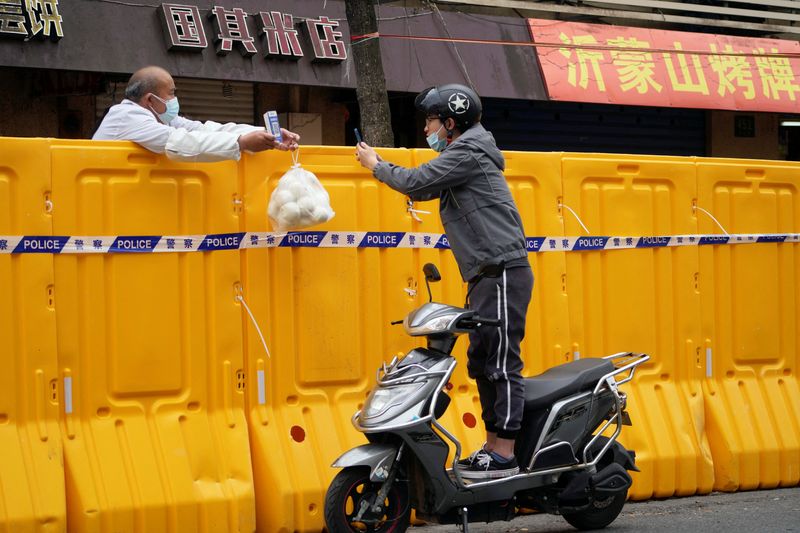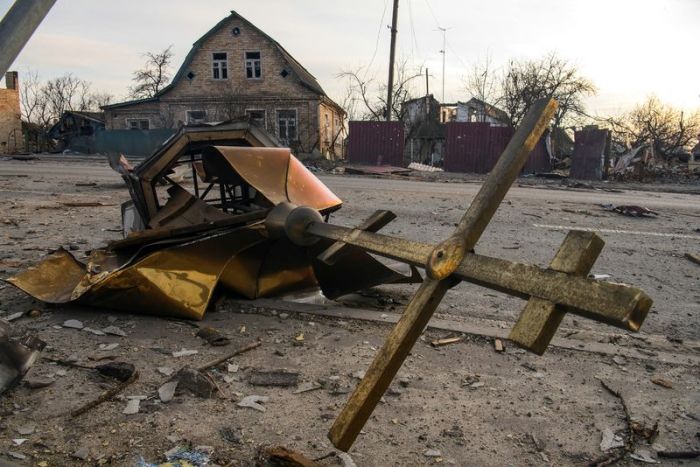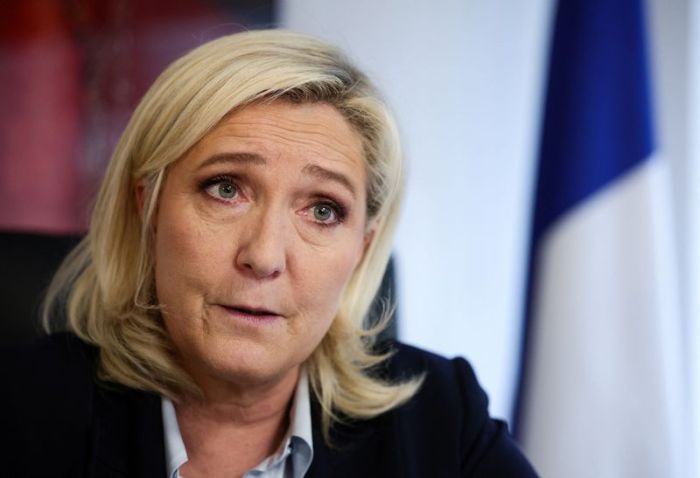SHANGHAI (Reuters) – The Shanghai government said on Thursday it was trying its best to improve the distribution of food and essential goods to locked-in residents, responding to growing public discontent as COVID curbs stretched into an 11th day.
China’s financial hub has fallen largely silent after the city imposed harsh curbs to stem the spread of COVID under the country’s “zero tolerance” policy, with only healthcare workers, volunteers, delivery personnel or people with special permission allowed on the streets.
Authorities say that has whittled the number of couriers, who must keep the city’s 26 million residents supplied, to just 11,000. Still operating but overloaded services include Meituan and Alibaba’s Freshippo online grocery platform and its Ele.me service.
Lockdowns for the city’s residents east of the Huangpu river began on March 28, while lockdowns for the rest of the city started on April 1. The exercise originally was intended to last five days.
The Shanghai branch of China’s Communist Party called on members to “dare show their swords and fight against all kind of behaviour that interferes with and destroys the overall efforts against the pandemic” in an open letter on Wednesday night.
Shanghai has sufficient reserves of staples such as rice and meat, but issues have cropped up in distribution and last-mile deliveries because of epidemic control measures, Shanghai’s vice mayor, Chen Tong, said at a news conference on Thursday.
He said the city would try to reopen some wholesale markets and food stores and allow more delivery personnel out of locked-down areas. Officials will also crack down on price gouging, he added.
Many residents are beginning to worry about food and drinking water, as well as obtaining products such as infant formula.
ONLINE OUTRAGE
Some have complained on social media about having to wake up at dawn for a chance at booking a grocery delivery, but finding them sold out within seconds. Others have turned to community WeChat groups to try to bulk-buy fruit and vegetables.
Social media users have also widely shared outrage over individual tragedies, including the alleged suicide of woman after being cyberbullied for paying too little to a delivery worker, and a healthcare worker beating to death a corgi dog after its owner allegedly was taken to quarantine.
Shanghai, which has been conducting multiple rounds of testing, reported close to 20,000 new locally transmitted cases for Wednesday, 98% of which it said where asymptomatic.
However, there are signs that transmission is still happening in spite of the lockdowns. Of its 19,660 asymptomatic infections, 633 involved people who were not under quarantine or who faced control measures, the data showed.
China’s most-populous city has yet to give an indication of when lockdown measures will be lifted, fuelling uncertainty and prompting European businesses and economists to warn about the mounting toll they are having on its economy and attractiveness as an international financial hub.
The economic impact is not confined to Shanghai, however, with 87 out of China’s top 100 cities imposing some level of restrictions on activity and mobility “in hopes of keeping COVID under control and avoiding Shanghai’s fate”, Gavekal Dragonomics analyst Ernan Cui said in a note on Thursday.
The coronavirus was first identified in the central Chinese city of Wuhan in late 2019.
From Monday, Shanghai will reduce cap loads on international flights by foreign airlines at 40%, down from 75% previously in a bid to reduce imported cases, two sources told Reuters on Thursday.
The city is a hub for the very few international flights still coming into China.
On Thursday, Shanghai’s disciplinary body said it had dismissed an official at a Shanghai Airport Group subsidiary as well as the deputy secretary of a district mental health centre over their poor implementation of virus control measures.
Although Shanghai’s case numbers remain small by global standards, the city has emerged as a test bed for China’s “dynamic clearance” strategy, which seeks to test, trace and centrally quarantine all positive cases and close contacts.
Shanghai has converted dozens of buildings into quarantine facilities that can house tens of thousands of positive cases.
(Reporting by Brenda Goh, David Kirton and the Shanghai newsroom; Editing by Gerry Doyle, Kim Coghill and Nick Macfie)

























